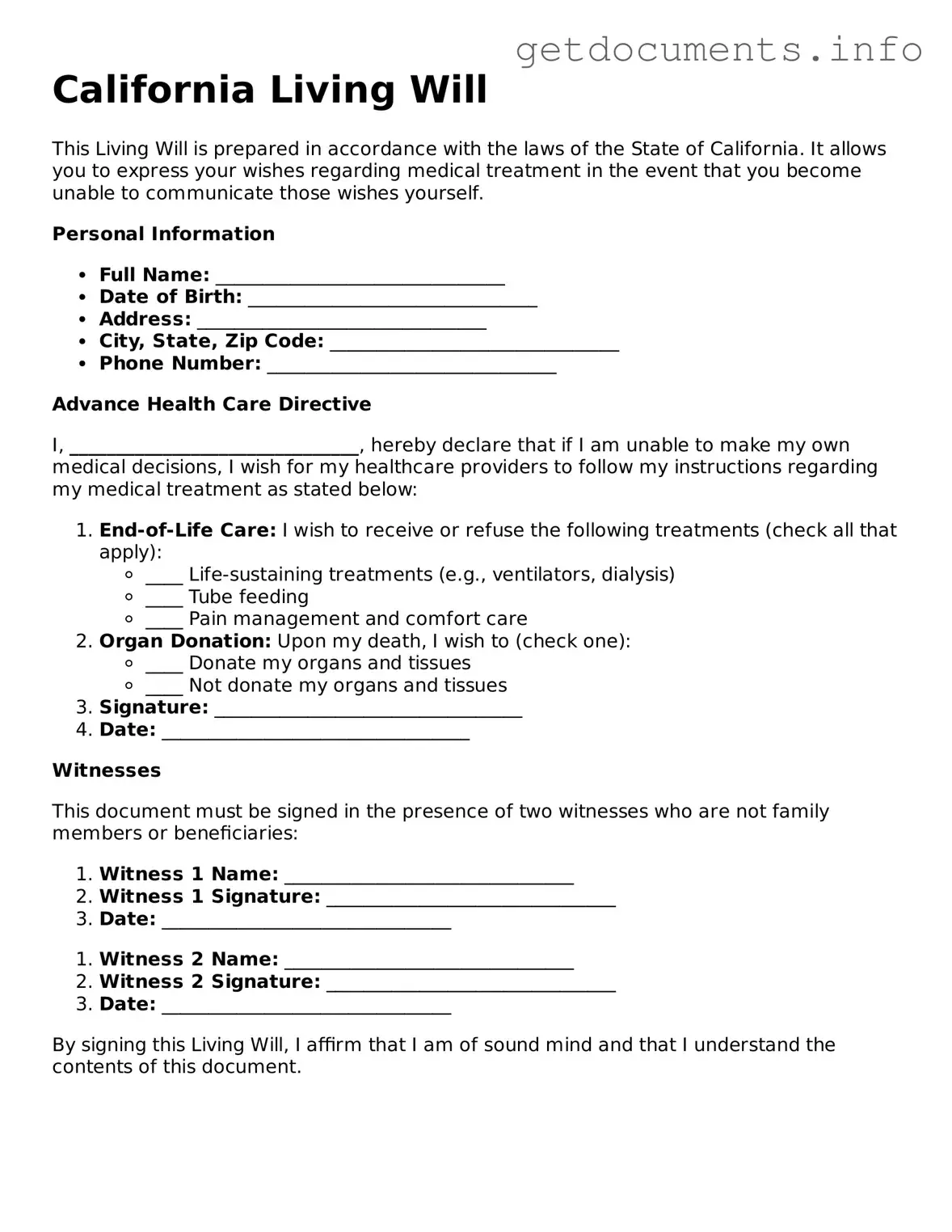Free Living Will Template for California
A California Living Will form is a legal document that allows individuals to outline their preferences for medical treatment in the event they become unable to communicate their wishes. This important form helps ensure that your healthcare decisions align with your values and desires. If you’re ready to take control of your medical future, consider filling out the form by clicking the button below.
Access Living Will Editor

Free Living Will Template for California
Access Living Will Editor
Got places to be? Complete the form fast
Fill out Living Will online and avoid printing or scanning.
Access Living Will Editor
or
⇩ PDF File
